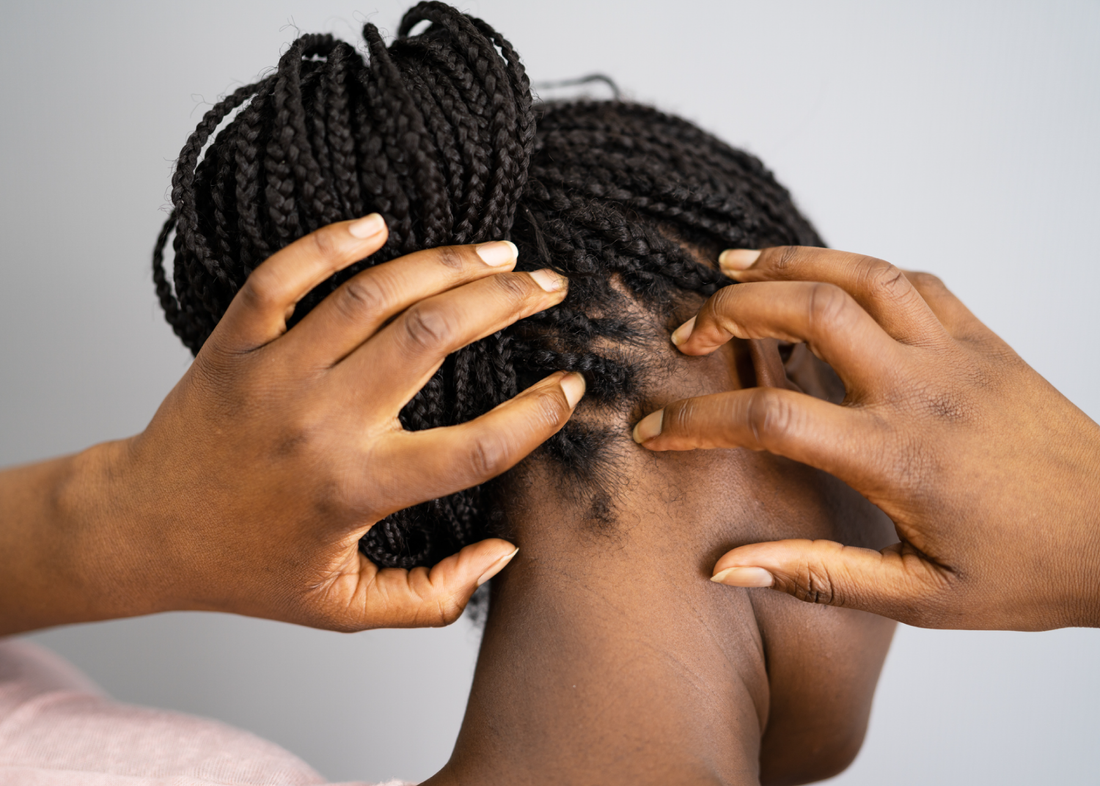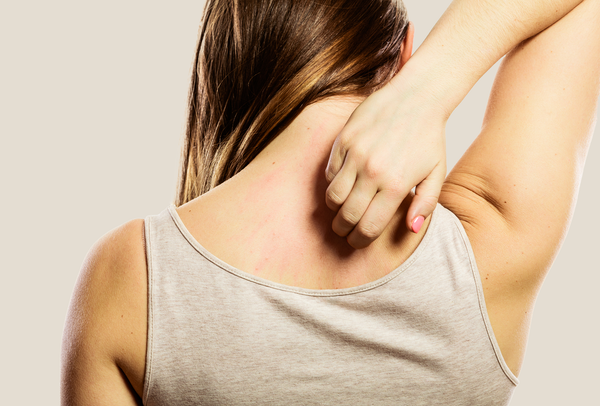Did you know that haircare products can be one of the main causes of contact dermatitis? Going beyond the medical speak, contact dermatitis symptoms can range from itching and redness to scaly skin. In fact, analysis of North American Contact Dermatitis Group patch-test data for a screening series of allergens from 2001 to 2016 showed that 9% of patients had positive skin patch test results associated with haircare products. Even more concerning is the fact that the incidence of contact dermatitis linked to personal-care products more than doubled between 1996 and 2016.
After reading these statistics, you may be wondering if your skin issues are a result of the products you use regularly. If your scalp or skin becomes itchy, red, or irritated after coming in contact with rinse-out or leave-in hair products, it’s possible that you may be allergic to one or more of the ingredients they contain.
For starters, look at your product ingredient lists. Some of the most common allergens found in haircare products include fragrance, p-phenylenediamine (PPD) which is commonly found in hair dyes; nickel, balsam of peru, cocamidopropyl betaine/3-dimethylaminopropylamine, methylchloroisothiazolinone/methylisothiazolinone, and formaldehyde-releasing preservatives.
It’s important to know that contact dermatitis can develop even after using a product or specific ingredient for an extended period of time. Although there are two types of contact dermatitis—allergic contact dermatitis and irritant contact dermatitis—it can be difficult to discern between the two. A dermatologist assessment that includes reviewing your skin history and performing patch tests can help identify the cause so it can be avoided.
Two ways haircare can cause contact dermatitis
Different types of haircare formulas can come in contact with the skin in several ways, and the areas where you experience contact dermatitis can help narrow down the potential offender.
1. When you rinse out shampoo and conditioner, you may experience contact dermatitis on the "rinse off areas" where the product has touched your skin. The areas that are most commonly affected are the face, behind the ears, and down the neck—however any part of the body can come in contact with the product can be affected.
2. Any allergens that may be found in leave-in products such as styling products or leave-in conditioners can transfer from the hair to skin. This happens when your hair touches your face or lays on your shoulders, chest, or back all day. Your leave-in products can also transfer to your pillowcase and then to your face.
SEEN offers a solution
After scanning ingredient lists and possibly seeing a dermatologist, a smart plan of attack to get your skin back on track is switching to non-irritating haircare products that are safe for sensitive skin—and that’s where SEEN comes in. (And BTW, SEEN’s fragrance-free products are safe for eczema-prone skin, too.)
When developing SEEN products, our founder, Harvard-trained dermatologist Dr. Iris Rubin, avoids many common allergens and irritants that can cause contact dermatitis. She also reviews published research and reports on contact dermatitis, and consults with a contact dermatitis specialist about emerging allergens as well. All of SEEN’s final formulas are subjected to repeat insult patch testing (RIPT) in subjects with sensitive skin, and every product is available fragrance free for those who may be allergic to fragrance.
As a result, all SEEN products are safe for sensitive skin, and all fragrance-free SEEN products have the National Eczema Association’s Seal of Acceptance™. Fragrance-Free Shampoo, Fragrance-Free Conditioner, and Magic Serum have also received SkinSAFE’s coveted “Trusted Choice” seals.
With SEEN, you can enjoy gorgeous hair and healthy-looking skin without having to choose one over the other. Our full range of Shampoo, Conditioners, styling products, and scalp care is designed to optimize the look and feel of your hair as well as the health of your skin, while helping to minimize the chance of contact dermatitis.




